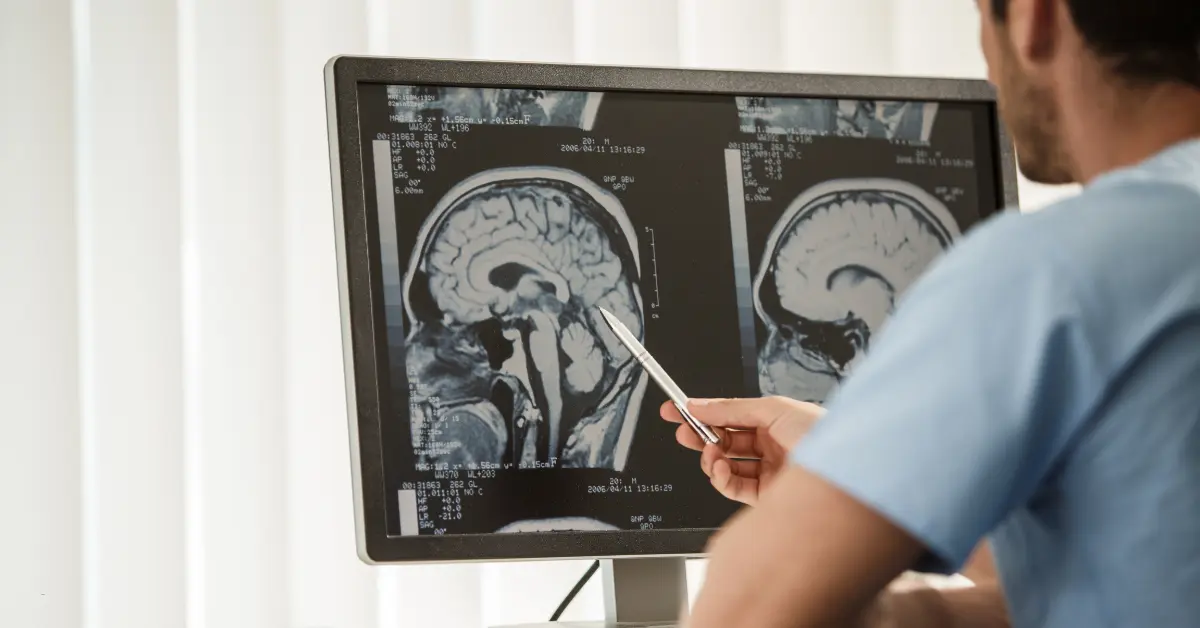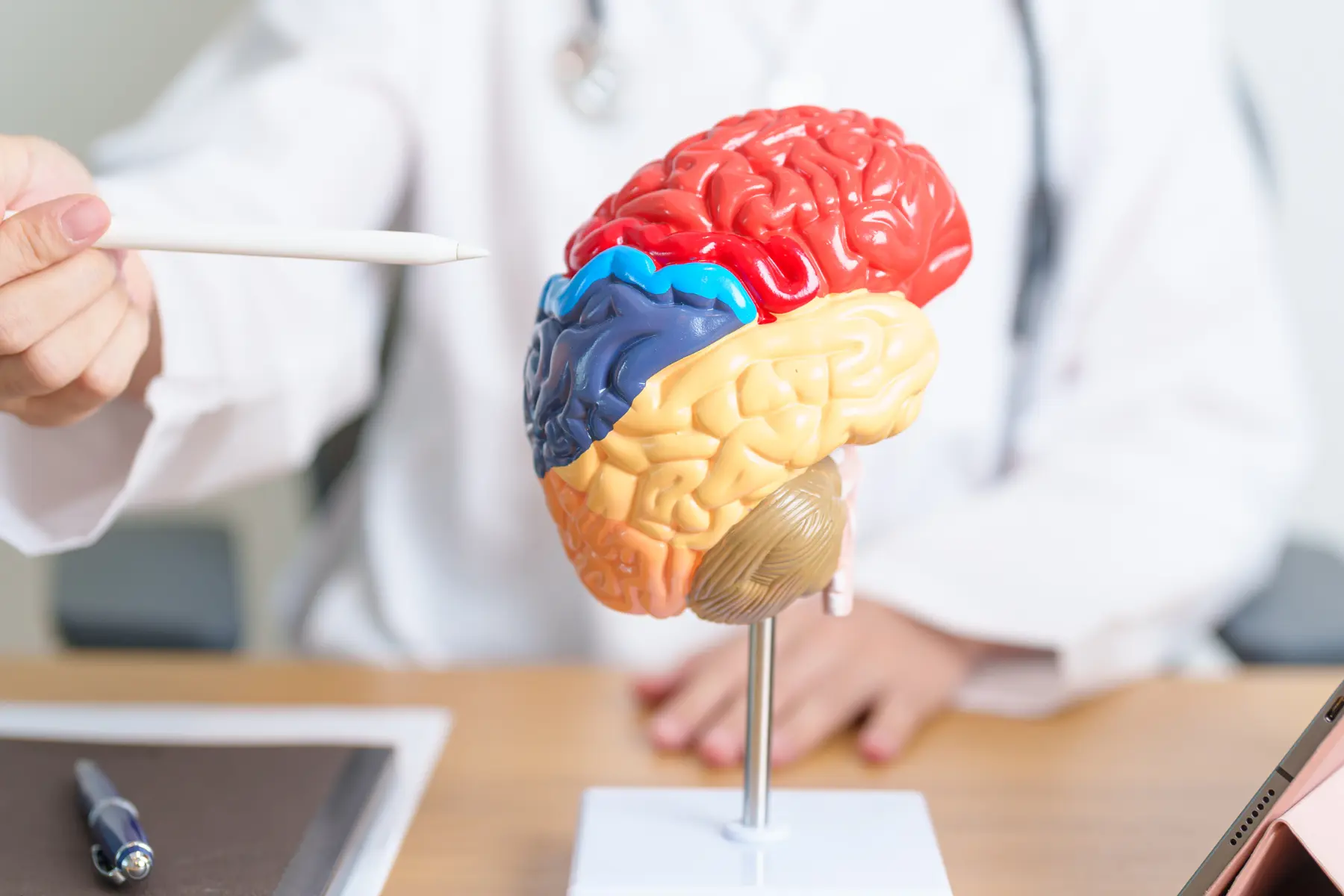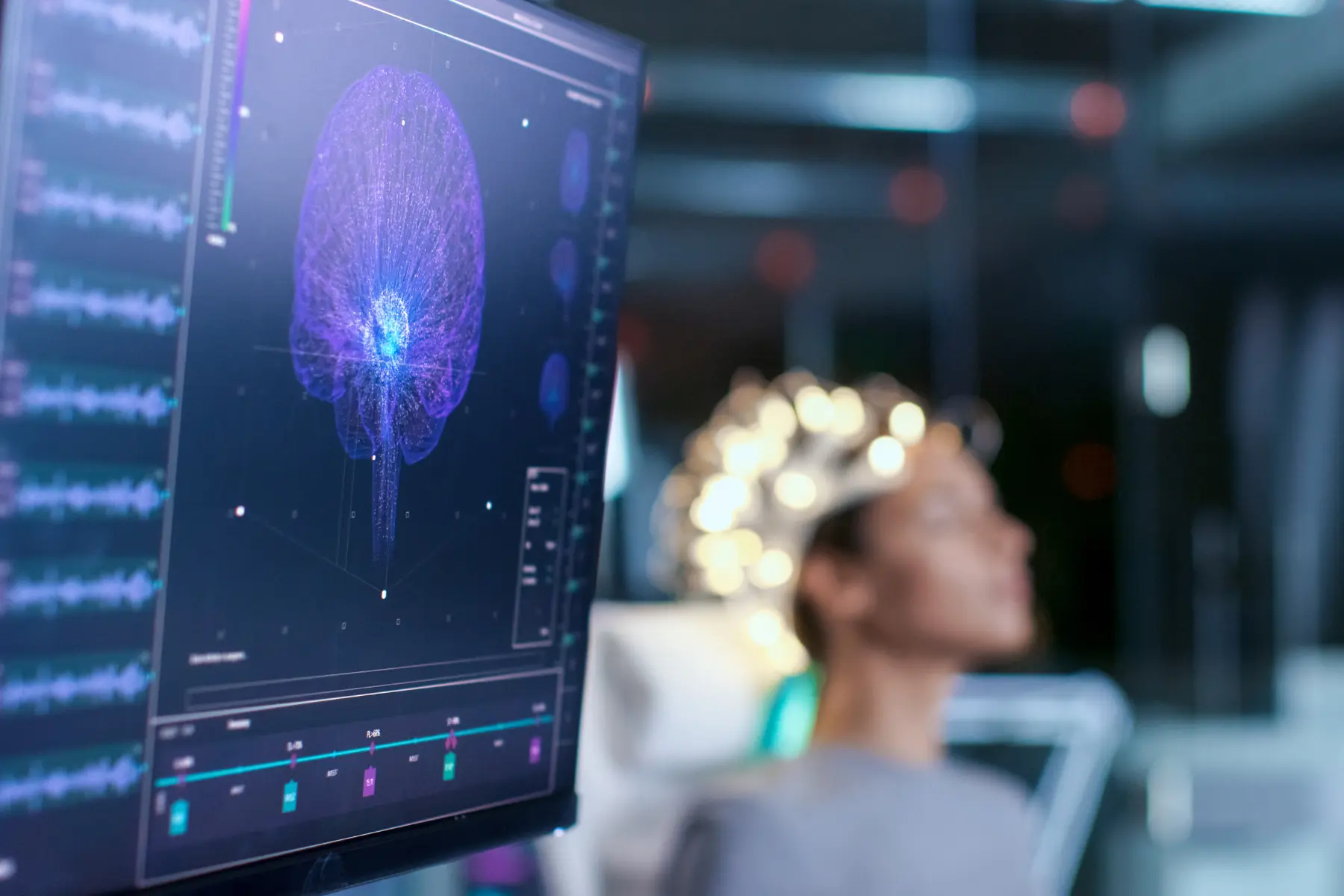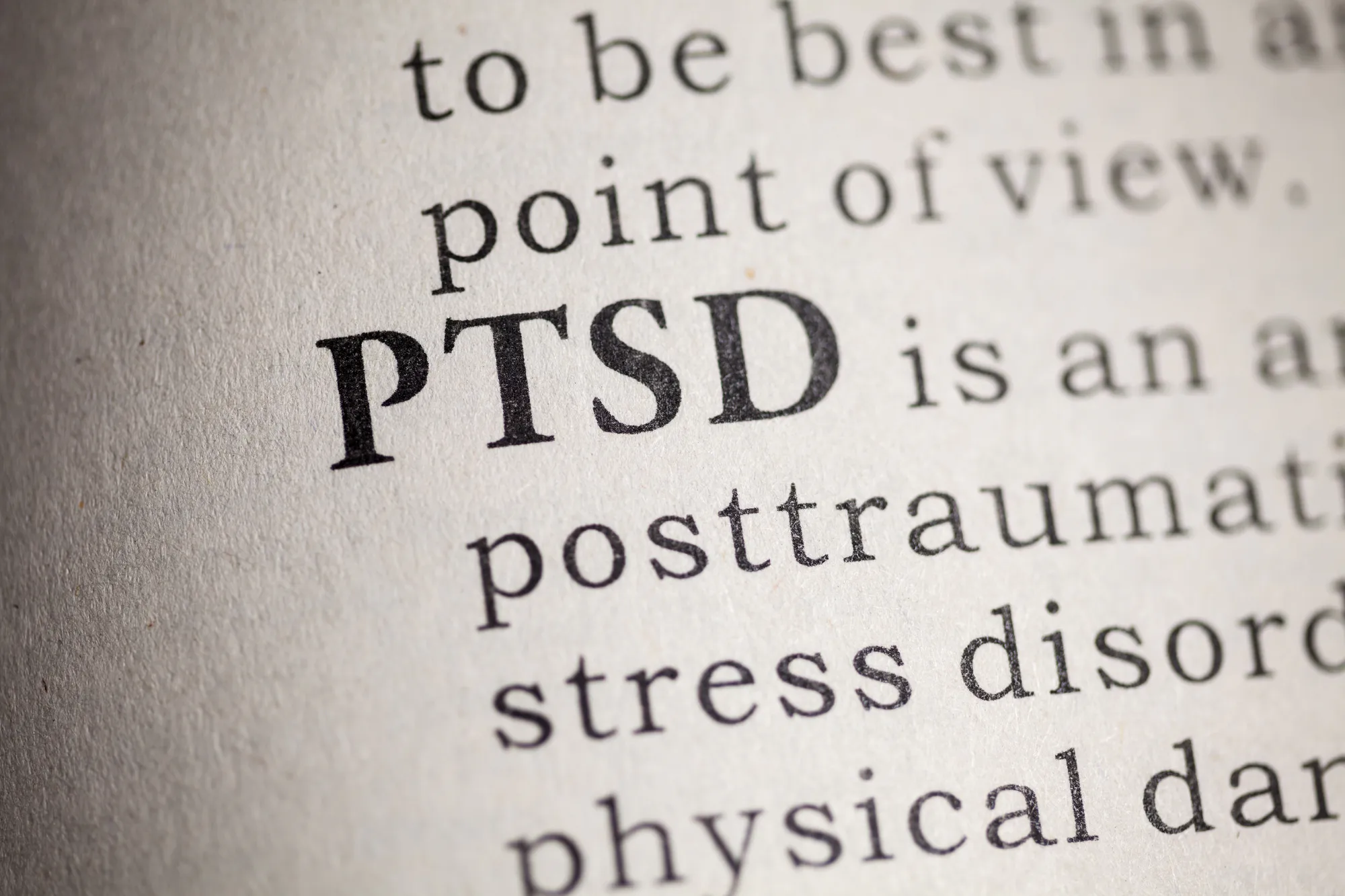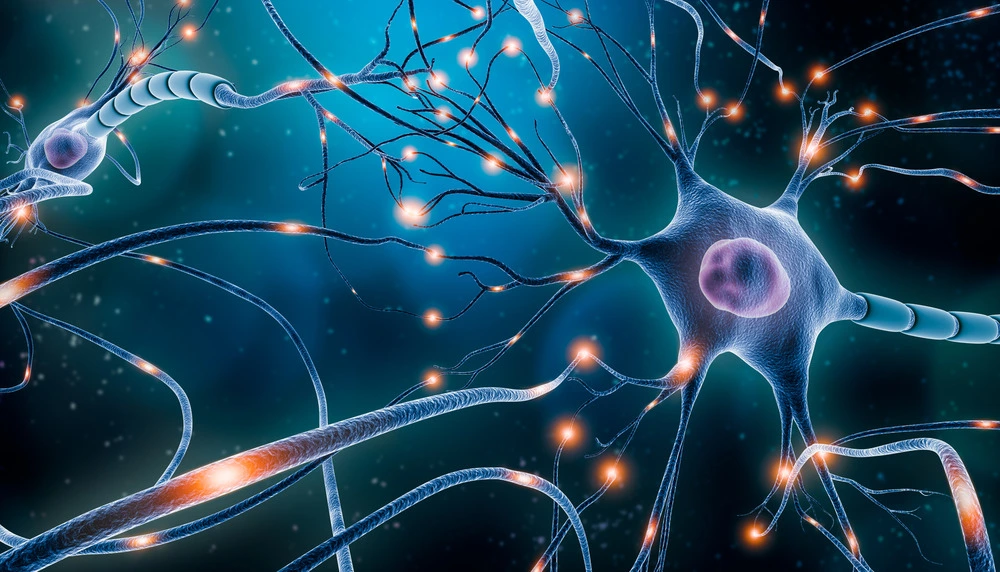Transcranial Magnetic Stimulation (TMS) is a non-invasive medical procedure that utilizes magnetic fields to stimulate nerve cells in the brain. It’s primarily used in the treatment of depression and has gained recognition for its effectiveness where traditional treatments have failed. TMS therapy for anxiety also shows promising benefits, offering new hope for patients suffering from chronic anxiety disorders.
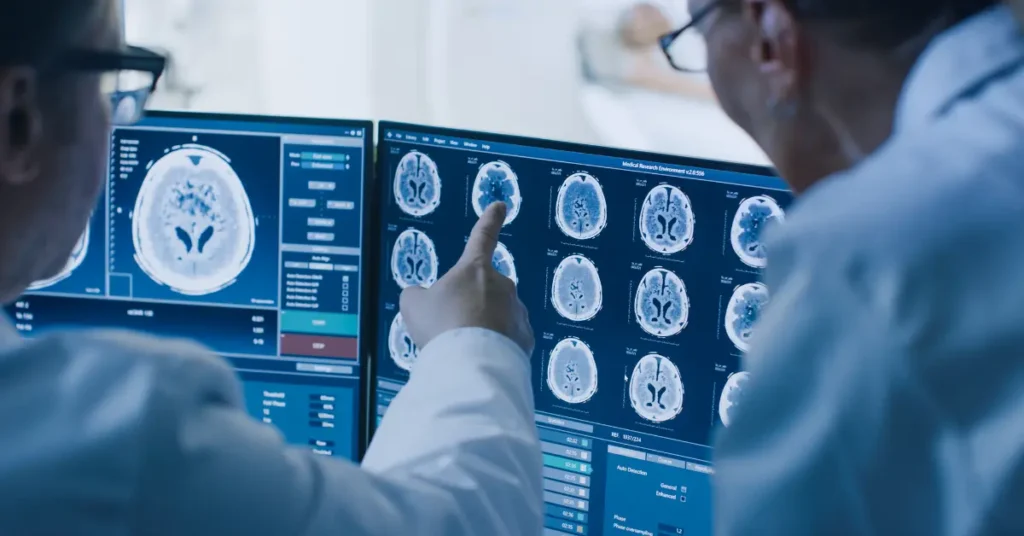
How Accelerated TMS Works
Mechanism of Action
Accelerated TMS treatment revolves around its ability to directly influence brain activity through electromagnetic impulses. These impulses induce electric currents in specific brain regions, which can alter the way brain cells communicate with each other. This process is believed to reawaken areas that have decreased activity due to mental health issues like anxiety and depression. The therapy targets these underactive areas, boosting their activity, and fostering a better balance of neurotransmitters, which are crucial for mood regulation and anxiety management.
Magnetic Field Stimulation
Magnetic field stimulation in accelerated TMS involves rapid, repeated switching of magnetic fields to induce small electrical currents in the brain. The generated currents stimulate nerve cells in the region responsible for mood control, thus potentially easing symptoms of anxiety and depression. This component of the therapy is critical because it allows for non-invasive interaction with the brain’s neural circuits without the need for medication or surgical interventions, providing a safe alternative to more invasive treatments.
Neural Activity Recalibration
Accelerated TMS effectiveness in treating anxiety disorders often rests on its capability to recalibrate neural activity. Over time, anxiety can alter the way brain circuits function, leading to persistent symptoms. Accelerated TMS helps to reset these neural pathways back to more normal activity levels. Such recalibration can reduce excessive anxiety responses, improve overall mood stability, and lead to more consistent day-to-day functioning. The process is akin to rebooting a computer, where normal operations are restored after addressing system errors.
Benefits of TMS Therapy for Anxiety Disorders
Faster Symptom Relief
One of the primary benefits of accelerated TMS therapy is the rapid alleviation of symptoms. Unlike traditional therapy methods that may take weeks or even months to show effects, accelerated TMS can provide noticeable improvements in a significantly shorter period. For those with severe anxiety, when prompt symptom management is essential for day-to-day functioning and general quality of life, this expedited relief is very helpful.
Enhanced Neural Plasticity
Accelerated TMS for depression is also known for promoting neural plasticity—the brain’s ability to adapt and reorganize itself by forming new neural connections. This increase in neural plasticity can lead to long-term improvements in how the brain processes anxiety. Enhanced plasticity not only helps in reducing immediate anxiety symptoms but also contributes to the resilience of the brain against future episodes, providing a dual benefit.
Non-Invasive Treatment
Another significant advantage of TMS therapy for anxiety disorders is its non-invasive nature. Unlike surgical interventions or some pharmacological treatments that may carry risks of side effects, accelerated TMS does not require any incisions or introduce substances into the body. This makes the therapy an excellent option for patients who are looking for a treatment that does not involve drugs or surgery, minimizing the risk of systemic side effects often associated with those approaches.
Comparing Accelerated TMS to Traditional TMS
Treatment Duration
Traditional TMS typically requires patients to attend sessions multiple times a week over several weeks or months, which can be quite time-consuming. In contrast, accelerated TMS therapy condenses the entire course of treatment into a shorter period, often completing what would traditionally take a month in just one week. This reduction in overall treatment duration is highly advantageous for individuals who need quick results due to severe symptoms or those who find it challenging to commit to long-term treatment schedules due to personal or professional commitments.
Patient Adherence
When comparing patient adherence, accelerated TMS often has higher completion rates. The shorter treatment duration makes it easier for patients to commit to the full therapy course without the disruptions that more extended periods might entail. This is particularly beneficial for those who struggle with long-term commitments due to fluctuating symptoms or busy lifestyles. Better adherence rates also translate to improved outcomes, as patients are more likely to receive the full therapeutic benefit within the designed treatment protocol.
Therapeutic Outcomes
When compared to standard TMS, accelerated TMS effectiveness typically exhibits more noticeable effects in a shorter amount of time. While both methods aim to achieve similar outcomes in terms of symptom relief and mood improvement, the accelerated method allows patients to return to their daily activities sooner, with less disruption to their personal and professional lives.
Patient Experience with Accelerated TMS Therapy
Initial Assessments
The journey to TMS therapy for anxiety disorders begins with detailed initial assessments, where clinicians evaluate the patient’s medical history, current symptoms, and overall health status. A comprehensive evaluation ensures that the accelerated TMS therapy is tailored to meet the specific needs of each individual. Personalization of treatment parameters, such as the intensity of the magnetic pulses and the specific areas of the brain targeted, is crucial for maximizing therapeutic outcomes and ensuring patient comfort throughout the process.
Session Experience and Comfort
During the accelerated TMS sessions, patient comfort is a priority. The procedure is generally well-tolerated, with many reporting only minor sensations such as a tapping feeling on the scalp. The sessions typically last between 20 to 30 minutes, during which patients can relax, listen to music, or watch TV. The non-invasive nature of TMS therapy anxiety treatment means that patients can immediately resume their daily activities after each session, with no downtime required. Because of its ease, patients have a far better treatment experience, which makes it a good choice for people with hectic schedules.
Managing Side Effects
Managing side effects in accelerated TMS therapy and anxiety relief is straightforward and typically involves minor interventions. Here are some common strategies used to enhance patient comfort and address side effects:
- Adjusting Treatment Intensity: Initially, if a patient reports discomfort during the session, clinicians can adjust the intensity of the magnetic pulses. This flexibility allows the therapy to remain effective while ensuring it does not cause undue distress. Lowering the intensity can particularly benefit those who are sensitive to the treatment, helping maintain patient compliance and optimize therapeutic outcomes.
- Use of Comfort Aids: To improve the patient’s comfort during the TMS sessions, clinicians provide additional supports such as cushions or adjustable headrests. These aids help in maintaining proper posture and reducing physical strain during the treatment. By optimizing the physical setup, patients can feel more relaxed and less distracted by discomfort, which can enhance the overall effectiveness of the therapy.
- Pre-Session Preparation: Effective pre-session preparation involves educating patients about what to expect during therapy and teaching them relaxation techniques. This preparatory step is crucial in reducing anxiety, which can exacerbate side effects such as headaches. By setting the right expectations and equipping patients with strategies to stay calm, clinicians can significantly improve patient comfort and therapy adherence.
- Post-Session Care: After a TMS session, clinicians often recommend simple measures like taking mild analgesics or applying cold packs to alleviate headaches, one of the common side effects. Additionally, advising patients to rest following their session can help in managing any residual discomfort. These post-care strategies are vital in ensuring that patients recover comfortably and feel prepared for their next session.
These methods collectively ensure that the therapy not only remains tolerable but also retains its efficacy, creating a balance between patient comfort and therapeutic success. By implementing these strategies, clinicians can effectively manage side effects and enhance the overall patient experience in accelerated TMS therapy.

Future Directions and Research in Accelerated TMS Therapy
Potential for Broader Applications
This treatment holds potential beyond treating anxiety and depression. Researchers are currently testing its efficacy in conditions such as PTSD, OCD, and certain neurological disorders like Parkinson’s disease. This expansion of scope could significantly impact how various psychiatric and neurological conditions are treated, potentially reducing reliance on pharmacological interventions and offering a non-invasive alternative that has fewer side effects.
Innovations in TMS Technology
Recent advancements in TMS technology have led to significant innovations that enhance the effectiveness, comfort, and accessibility of treatments for neurological and psychological disorders. These developments are not only promising in terms of clinical outcomes but also in making treatments more patient-friendly:
- AI-Powered Customization: Modern TMS systems now incorporate artificial intelligence to analyze extensive patient data, including past treatment responses and neurological feedback. This AI integration enables the systems to automatically adjust treatment parameters such as intensity, frequency, and duration to tailor therapies specifically to individual patient needs. By maximizing protocols to produce the optimum results for every patient, this personalization promises to increase treatment efficacy.
- Wearable TMS Devices: The development of portable, wearable TMS equipment marks a significant step forward in the field. These devices allow patients to administer their treatments at home, greatly reducing the need to visit clinics frequently. Wearable TMS devices are designed to be user-friendly, lightweight, and compact, making the treatment more accessible and less disruptive to everyday life. This innovation could potentially expand the use of TMS to a broader range of patients and conditions by facilitating consistent, regular treatment applications.
- Integration with Neuroimaging: Integrating TMS with advanced neuroimaging techniques such as functional Magnetic Resonance Imaging (fMRI) enhances the precision of the treatment. This combination allows clinicians to observe the brain in real time during TMS sessions, enabling them to target the specific brain areas involved in the disorder more accurately. Such targeted therapy not only increases the effectiveness of the treatment but also minimizes the impact on neighboring brain regions, thereby reducing potential side effects.
- Enhanced Coil Designs: Recent innovations in coil design are focused on improving the efficiency and comfort of TMS therapy. New coil structures are being developed to target deeper areas of the brain, which are often implicated in more severe or treatment-resistant conditions, without increasing the discomfort or side effects for the patient. With these developments in coil technology, TMS therapies may be able to treat a greater range of neurological and psychological conditions, increasing their effectiveness and scope.
These technological advancements are designed to improve the precision and convenience of TMS treatments, making it possible to tailor therapies more closely to individual patient needs and conditions. The integration of such technologies could revolutionize the field, making the effectiveness of TMS therapy for anxiety a cornerstone in mental health and neurological treatments.
Integrating TMS with Other Therapies
In recent years, there has been a marked increase in the exploration of combining accelerated TMS with other therapeutic modalities like cognitive-behavioral therapy (CBT) and pharmacotherapy. This integrated approach seeks to synergize the benefits of each treatment modality, enhancing overall therapeutic outcomes. For example, TMS can rapidly modulate neural activity, offering immediate relief from depressive symptoms, while CBT provides patients with tools to manage their condition long-term by changing negative thought patterns and behaviors.
Moreover, the combination of TMS with medications such as antidepressants or mood stabilizers is another area of interest. Medications can alter brain chemistry and increase neuroplasticity, potentially making the brain more receptive to TMS treatments. This can accelerate the benefits of TMS, reducing the time it takes for patients to experience relief from their symptoms. This approach can be tailored to the needs of individual patients based on their specific biochemical makeup, which could enhance the effectiveness of treatment and minimize side effects. The potential of TMS to be integrated with psychotherapy extends beyond CBT to include other therapeutic approaches such as psychodynamic therapy, mindfulness-based stress reduction, and supportive therapy. These therapies can complement the neurological effects of TMS by addressing the underlying psychological and emotional issues associated with mental health disorders. For instance, mindfulness practices could help patients develop a greater awareness and acceptance of their emotional state, reducing stress and enhancing the effectiveness of TMS.

How TMS therapy treats anxiety represents a transformative approach to mental health treatment, providing hope and improved quality of life for many patients. Its development and application reflect ongoing innovations in medical technology and a growing understanding of mental health needs, pointing toward a future where more people can achieve better mental health with fewer impediments.




